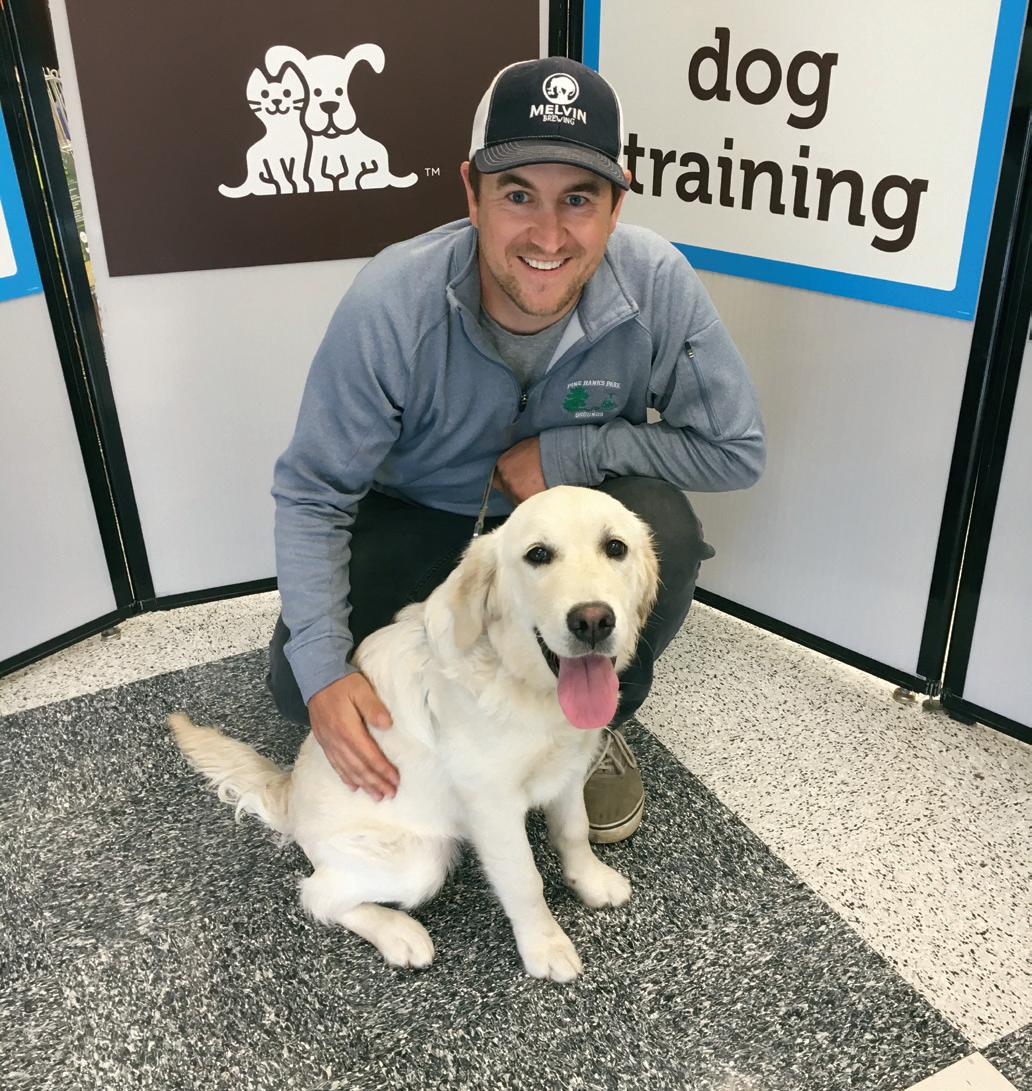
4 minute read
NESTMA Member Spotlight: Meet Andrew Walsh
Superintendent, Pine Banks Park • Malden/Melrose, MA
Q: How long have you been a NESTMA member?
Advertisement
A: I was still in college when I joined in 2005.
Q: Where did you go to school?
A: I graduated from UMass Amherst in 2006 with a bachelor’s degree in Plant, Soil, and Insect Sciences with a concentration in turfgrass management.
Q: What was your first job in the industry?
A: My first job was a grounds staff position at Mount Hood Golf Course in Melrose, MA when I was a freshman in high school.
Q: Where did you go from there?
A: In college I did internships at Essex Country Club, The Boston Red Sox, and Longwood Cricket Club. I then worked full time at Longwood for several years, did a stint at The Country Club, and back to Longwood for a few more years before landing at Pine Banks Park.
Q: Who was your mentor when you were starting out in the business?
A: Michael Buras of Longwood Cricket Club has easily made the most impact in my career. He gave me the confidence to believe in myself. The training and education I got while working with Mike shaped my agronomic understanding and development. His actions as a turf manager, industry advocate, and volunteer are admirable and I hope to make at least a fraction of the positive impact he has.
Q: What’s the best business advice you’ve ever received?
A: The best professional advice I ever received was to keep an open mind when looking at potential career paths. When I was in college, very few students were interested in sports turf. Being open to the idea of working in areas of turf management other than golf was the best thing I have done for my career.
Q: What advice would you share with people starting out in sports turf management today?
A: Along the same lines as keeping an open mind, I would advise to learn about other aspects of grounds management. Arbor care, horticulture, mechanics, and basic carpentry are a few areas that come to mind. Being a versatile and balanced employee will open you up to more, and potentially better, career opportunities. Very few jobs, if any, are dedicated solely to turf management.
Q: Since the beginning of your career, what is the biggest change you’ve seen in the sports turf industry?
A: The level of professionalism has increased dramatically. We now have a national certification program (CSFM), professionals from all areas of turf management are seeking jobs in our sector of the industry, and even the general public is becoming increasingly aware of the importance of green space in our communities. This is leading to the implementation of more intense agronomic programs and hiring of more qualified candidates.
Q: What is the next “game-changer” you see on the horizon for the sports turf industry?
A: In the climate of increasing legislation against the use of pesticides, I think that fraze mowing could be a sustainable alternative. The concept of re-grassing every year or few years goes against what we’ve always tried to do — which is to grow a perennial stand year after year. The advantages are that you can remove thatch, weeds, and can plant the best new cultivars available. Especially for those without many options chemically speaking, this could be the foundation of the agronomic program of the future.
Q: What’s your favorite/most useful: Equipment?
A: Hands down our tractor. Attachments we have include a blower, backhoe, forks, and front-end loader. It does so much for us, and with more implements, hopefully it will be able to do even more.
Q: Product?
A: Since the addition of calcined clay topdressing on our infields, managing the moisture content of our skinned surfaces has become much easier. The fields handle rain events much better, allowing for fewer rainouts/delays, and in drier weather the fields retain moisture from watering much better.
Q: Technology?
A: We recently purchased a soil moisture meter with GPS technology. Hopefully with this technology we will be able to identify any problem areas as well as water much more efficiently and accurately as soil moisture dictates.
Q: What have you enjoyed most about being a NESTMA member?
A: NESTMA has been a large part of my professional life. From receiving the Charles K. Mruk Scholarship as a student, to learning at the many educational events, to developing relationships with others in the industry, I have endlessly benefited from my membership. The job I currently hold is due to one of my relationships with a fellow NESTMA member who helped guide me through the process.

Andrew and son Liam
Q: Can you share a bit about your family life and/or what you enjoy doing in your free time?
A: I am blessed with a beautiful, loving, and supportive family. My wife, son, daughter, and my (co-worker) golden retriever allow me to do what I love and keep me plenty busy! If I had more free time, I’d try to take a few strokes off my golf game.

Andrew and his “coworker” Maggie.
Q: Is there anything else you’d like to share with your fellow NESTMA members?
A: I would ask that if you are not active in NESTMA, become more active. Even simple things like making suggestions or comments (we as a board rely on the input of the members, so do not be shy), offering to host an event, or reaching out to fellow members for advice is participation. Everyone is approachable and willing to help. NESTMA is so much more than a just a source for pesticide credits, so please utilize the resources you have.









